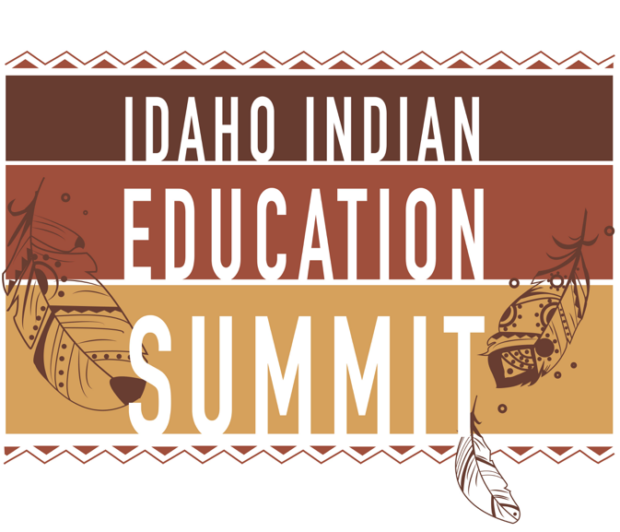Indigenous and non-Indigenous educators and leaders from across Idaho and its five federally recognized tribes gathered at Boise State University for the Idaho Indian Education Summit on Monday and Tuesday.
The purpose of the conference was to help educators gain knowledge about how to best serve Native American students and implement equitable practices in the classroom.
Idaho’s five federally recognized tribes are the Shoshone-Bannock, Shoshone-Paiute, Coeur d’Alene, Kootenai and Nez Perce. The tribes are sovereign entities, and work with the state through a government-government relationship. The conference focused on fostering that relationship and increasing education about the state’s Indigenous peoples.
The theme of the summit was “Our Collective Future,” and the two-day event included over 20 breakout sessions.
Many presenters focused on integrating Indigenous knowledge into classrooms to enhance learning for all students.
Randy’L Teton, a member of the Shoshone-Bannock Tribes of the Fort Hall Reservation, presented on the historical contributions of Sacajawea, who was from what is now Salmon, Idaho. Teton served as the Shoshone model for the Sacajawea one-dollar coin introduced in 2000.
Dr. Vanessa Anthony-Stevens and Dr. Shawna Campbell-Daniels of the University of Idaho presented on the university’s Indigenous Knowledge for Effective Education Program (IKEEP), which prepares and certifies Indigenous teachers to meet the needs of Native American students in K-12 schools. The program is funded through federal grant money and is available to members of any of the ten tribes included in the university’s memorandum of understanding.
Other sessions focused on how to increase collaboration between tribal governments and state agencies.
T.J. Bliss from the Idaho State Board of Education moderated a panel about the existing and future needs of Native American students at Idaho universities and colleges. Panelists included Ladd Edmo, a council member on the governing body for the Shoshone-Bannock Tribes, alongside Shirley Allman, who serves on the Nez Perce Tribal Executive Committee. Justin Marsh, the college and career specialist for the Coeur d’Alene Tribe’s Department of Education, and Jesse LaSarte, the family engagement specialist for the same department were also on the panel.
The State Board of Education also presented on their legislative goals for the upcoming year and the updated high school graduation requirements. The conversation evolved into one about how the State Board can communicate more effectively with the tribes and ensure their needs are being met.
“There continue to be grave…concerns about our Native students in our public school that aren’t being addressed,” said Dr. Chris Meyer, the Director of Education for the Coeur d’Alene tribe. “I know it’s very complex, but you have local school boards that don’t understand how concerned we are.”
Others voiced concerns about the pushback against history standards and curriculums, saying they’re worried the state will lose the progress it’s made to get accurate Indigenous histories taught in classrooms.
The summit was hosted by the Idaho State Board of Education’s Idaho Indian Education Committee and the State Department of Education’s Office of Indian Education. Governor Brad Little, Superintendent of Public Instruction Sherri Ybarra and Boise State President Dr. Marlene Tromp also offered their remarks at the event.
